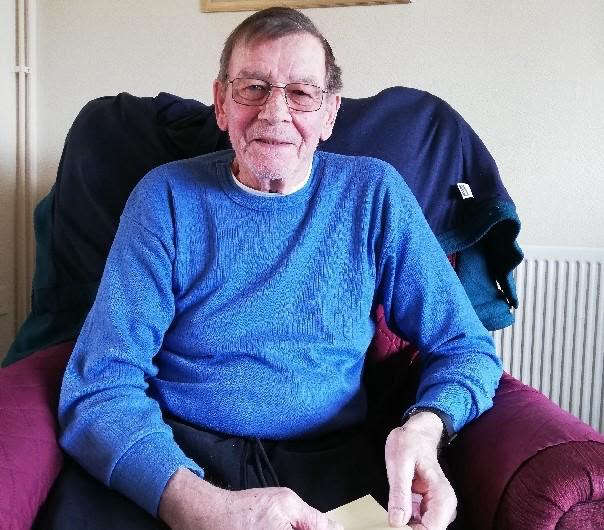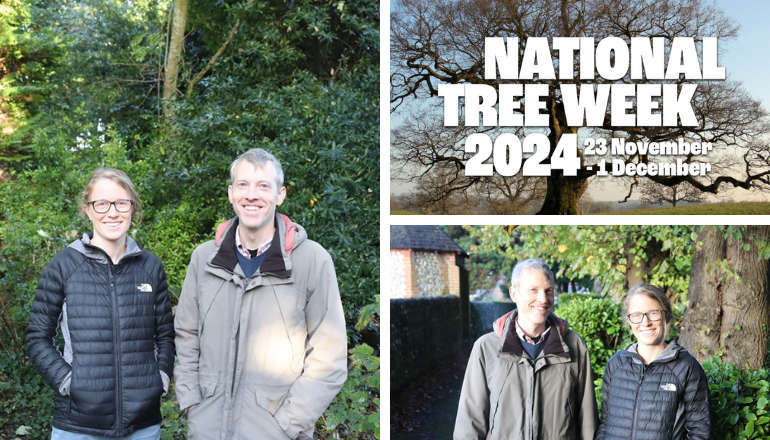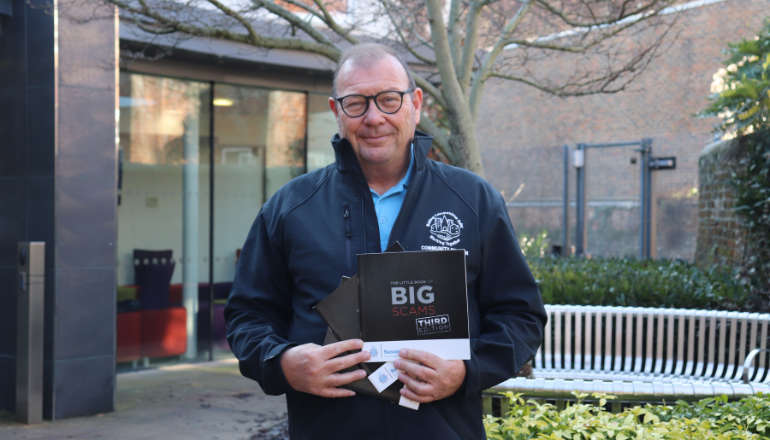
A man from Peacehaven has become the first cancer patient in Sussex to be treated with a new highly precise treatment called Stereotactic Ablative Radiotherapy (SABR).
Peter Tuppen, 78, was treated at the Sussex Cancer Centre, University Hospitals Sussex NHS Foundation Trust in July, as part of the fast-track national rollout of the treatment during Covid-19.
SABR uses multiple slender beams of radiation which are carefully directed from different angles to meet at the tumour. Sophisticated image guidance technology takes account of breathing motion in order to ensure beams are targeted with great accuracy. This allows higher doses of radiation to be safely delivered at each treatment session, thereby cutting the number of hospital visits that potentially vulnerable cancer patients need to make.
Peter's wife of 42 years, Helen Tuppen, said:
“When Peter was diagnosed with a tumour in his lung this spring, we were initially told he’d have to travel to London for the SABR treatment, which would have been really difficult as he suffered a stroke a few years ago that has impacted his mobility.
“We were very grateful to learn that not only were they offering the treatment locally in Brighton, but also that he would be the first patient.”
The grandfather of seven and great-grandfather of three needed just five sessions over a week and a half, compared to conventional radiotherapy that usually needs 20 to 30 treatments.
Dr Juliet Brock, consultant clinical oncologist, said:
“It’s been a tremendous team effort to set up the service as part of the national initiative and provide this specialised and effective treatment to cancer patients across Sussex."
Helen added:
“He finished his treatment at the end of July and is now at home recovering and looking forward to spending time with family. We are so thankful for the amazing care he received. “He is tired, but doing well, and will be followed up in a couple of months to see how the treatment has worked.”
The rollout at University Hospitals Sussex NHS Foundation Trust is initially aimed at treating patients with non-small cell lung cancers and will be extended to include other cancers in the future.

 Funding Available For Tree Planting In Chichester District as National Tree Week Begins
Funding Available For Tree Planting In Chichester District as National Tree Week Begins
 West Sussex Firefighters And Emergency Services Carry Out Training Exercise In Chichester Harbour
West Sussex Firefighters And Emergency Services Carry Out Training Exercise In Chichester Harbour
 Shoreham Lifeboat’s Festive Look Boosted By Family-Run Business
Shoreham Lifeboat’s Festive Look Boosted By Family-Run Business
 Final Touches Being Made To £2m Sussex Wastewater Site Upgrade
Final Touches Being Made To £2m Sussex Wastewater Site Upgrade
 AllSaints Founder To Host Sustainable Fashion Show In Brighton To Raise Money For Homelessness In City
AllSaints Founder To Host Sustainable Fashion Show In Brighton To Raise Money For Homelessness In City
 Chichester Community Warden Helping Fight Against Fraud This Christmas
Chichester Community Warden Helping Fight Against Fraud This Christmas
 Wealden Council Calls For Government Rethink On Winter Fuel Payment
Wealden Council Calls For Government Rethink On Winter Fuel Payment
 Snowy Protest At Lewes County Hall Calls For Fossil Fuel Divestment
Snowy Protest At Lewes County Hall Calls For Fossil Fuel Divestment
 Local MP Tours Firefighters’ Centre In Littlehampton
Local MP Tours Firefighters’ Centre In Littlehampton
 Former Portslade Scout Leader Convicted Of 79 Child Sex Offences
Former Portslade Scout Leader Convicted Of 79 Child Sex Offences
Comments
Add a comment